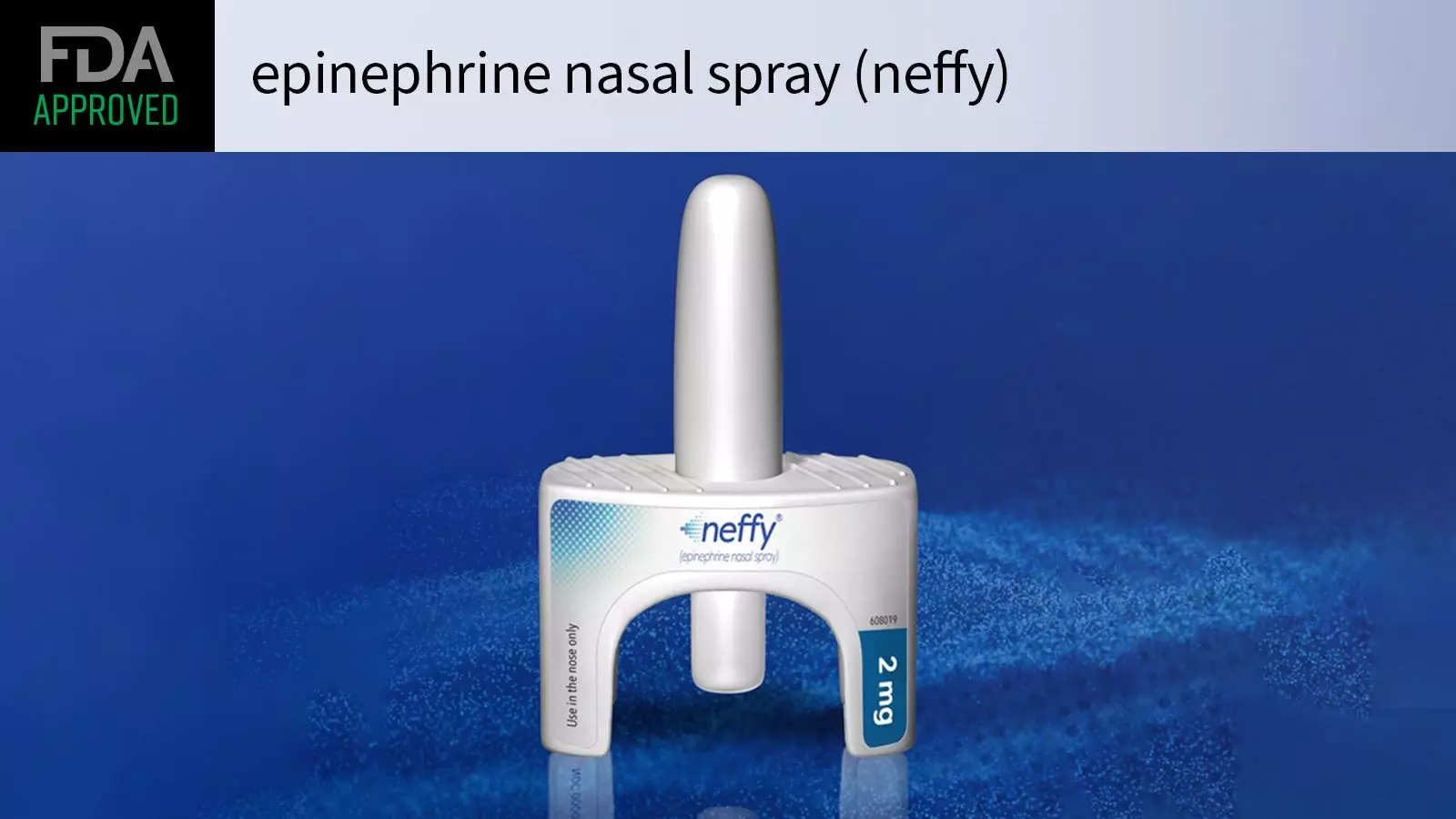In a groundbreaking development for allergy sufferers, the FDA has recently approved Neffy, a non-injectable treatment for anaphylaxis, marking a significant turn in the landscape of emergency allergy management. Previously known as ARS-1, Neffy is poised to address a crucial gap in therapy by providing a more accessible and less intimidating option for both adults and children weighing at least 66 pounds. This approval is not merely a regulatory milestone; it welcomes a novel approach to treating life-threatening allergic reactions that have traditionally depended on injectable epinephrine, which can evoke anxiety in many patients, particularly children.
Neffy functions as a single-dose nasal spray designed for quick administration into one nostril. In cases where initial symptoms do not alleviate, a second dose may be administered to the same nostril, facilitating a rapid response to allergic reactions. This delivery method is a major advancement, as many patients have a natural aversion to needles, which can lead to delays in treatment or outright refusal. The ability to use a nasal spray lessens the psychological barriers associated with epinephrine administration, potentially leading to faster intervention during critical allergic reactions.
Type I allergic reactions encompass a broad spectrum of responses, ranging from mild allergies to severe anaphylaxis. Common triggers include food allergens, insect stings, and certain medications like penicillin. Symptoms can vary widely, from hives and facial swelling to severe, life-threatening anaphylactic responses. Given the prevalence of these reactions, the approval of Neffy represents an essential advancement in treatment protocols. With the FDA’s endorsement, it becomes increasingly vital for healthcare providers to integrate Neffy into existing emergency care frameworks.
The FDA’s blessing of Neffy was underpinned by extensive clinical trials involving 175 healthy adults who did not experience anaphylaxis. However, the approval was not without its caveats. Neffy comes with advisories concerning certain nasal conditions, such as polyps or prior nasal surgery, which could impair the drug’s effectiveness. Moreover, individuals with pre-existing conditions or allergies to sulfites are encouraged to use this nasal spray with caution. Side effects reported from the use of Neffy include throat irritation, headaches, and general feelings of discomfort, emphasizing the need for informed patient discussions about potential risks versus benefits.
The pathway to Neffy’s approval was notably complex. Almost a year prior, the FDA had denied its initial application, citing a need for additional pharmacokinetic and pharmacodynamic data. This decision surprised many, including advisory committee members who had expressed favorable opinions in earlier assessments. Following the agency’s response, ARS Pharmaceuticals worked diligently to provide the requested data—including results from a repeat dosing study under specific conditions—ultimately leading to the granting of approval later.
The Future of Neffy and Ongoing Research
As Neffy enters the market, its developers are not resting on their laurels. The company is conducting a phase IIb trial to evaluate Neffy’s efficacy in patients suffering from urticaria, and a pivotal study is slated to begin in 2025. This proactive approach indicates the potential for Neffy to broaden its application within the realm of allergy treatments. As the medical community becomes more familiar with this new option, it is poised to reshape patient and clinician attitudes toward managing allergic emergencies.
The introduction of Neffy as a nasal spray for treating allergic emergencies represents a significant evolution in allergy treatment modalities. By overcoming the fear associated with injections, Neffy stands to not only expedite the response to anaphylaxis but also to empower patients facing severe allergies. With continued research and clinical focus, Neffy has the potential to bring transformative changes to allergy management, alleviating the distress that so often accompanies allergic reactions. As we move forward, the medical community must remain vigilant in educating patients about this new treatment option, ensuring that lives are safeguarded in the face of allergy challenges.


Leave a Reply